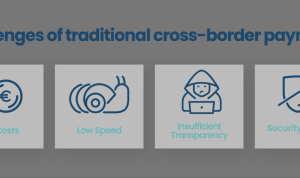Comparing the Best Online Payment Gateways is essential for anyone looking to streamline their online transactions. In today’s digital age, choosing the right payment gateway can significantly impact your business’s success and customer satisfaction. With numerous options available, understanding the features and benefits of each gateway can help you make informed decisions that cater to your specific needs.
This exploration delves into the various attributes of popular online payment gateways, highlighting their strengths and weaknesses. From transaction fees to security features and user experience, we’ll cover all the crucial aspects that can influence your choice.
In today’s fast-paced world, the concept of sustainability has taken center stage, influencing everything from corporate strategies to individual lifestyle choices. As we grapple with the realities of climate change, pollution, and depleting natural resources, the necessity for sustainable practices has become increasingly evident. This article delves into the multifaceted nature of sustainability, exploring its importance, challenges, and the innovative solutions being implemented across various sectors.
Sustainability is often defined as the ability to meet the needs of the present without compromising the ability of future generations to meet their own needs. This definition, articulated in the Brundtland Report of 1987, underscores the interconnectedness of environmental health, economic viability, and social equity. These three pillars – often referred to as the triple bottom line – serve as the foundation for sustainable development.
One of the primary reasons sustainability is crucial today is its direct impact on environmental health. The consequences of human activities, such as deforestation, industrial pollution, and excessive waste generation, have resulted in significant ecological degradation. The United Nations has warned that we are approaching critical thresholds beyond which the planet may face irreversible damage. This makes it imperative for both individuals and organizations to adopt sustainable practices.

For instance, in the corporate world, many companies have begun to embrace sustainability through environmentally friendly policies. Corporations are now implementing greener supply chains, reducing their carbon footprints, and investing in renewable energy sources. A prime example is the automotive industry, where major players are transitioning to electric vehicles (EVs) in response to rising consumer demand for eco-friendly options.
This shift not only mitigates greenhouse gas emissions but also drives innovation in battery technology and renewable energy integration. However, the journey toward sustainability is not without its challenges. One of the most significant obstacles is the existing infrastructure. Many cities and regions are built around outdated systems that are heavily reliant on fossil fuels. Transitioning to a more sustainable framework requires substantial investment and a complete overhaul of these systems.
Moreover, there is often resistance from certain industries that may face economic disadvantages in the short term as they adapt to more sustainable practices. Another challenge lies in the global nature of climate change. Localized efforts, while commendable, are insufficient to combat a problem that transcends borders. International collaboration is crucial, and various agreements, such as the Paris Agreement, aim to unite nations in their efforts to reduce carbon emissions.
However, the political will to enforce these agreements consistently varies, leading to disparities in progress among different countries. Despite these challenges, there are numerous innovative solutions emerging that hold promise for a more sustainable future. For example, advancements in technology have paved the way for smart cities. These urban areas utilize data and technology to enhance the efficiency of services, reduce waste, and improve the quality of life for residents.
Smart grids, for instance, allow for more efficient energy distribution, helping to reduce reliance on non-renewable resources. In agriculture, sustainable farming practices are being adopted to ensure food security while minimizing environmental impact. Techniques like crop rotation, agroforestry, and organic farming not only enhance soil health but also increase biodiversity. These methods reduce the need for chemical fertilizers and pesticides, which can harm the environment.
Additionally, consumer behavior is shifting towards more sustainable choices. The rise of eco-conscious consumers has led to an increase in demand for sustainable products. Brands that prioritize sustainability in their production processes are not only attracting a loyal customer base but are also setting new industry standards. This shift is encouraging other companies to adapt, creating a ripple effect that promotes sustainability across various sectors.
Education plays a critical role in fostering a culture of sustainability. By raising awareness about environmental issues and promoting sustainable practices from a young age, we can empower future generations to make informed decisions. Schools and universities are increasingly integrating sustainability into their curricula, encouraging students to think critically about their impact on the planet. Moreover, social equity is a vital aspect of sustainability that cannot be overlooked.
As we strive for a more sustainable world, it is essential to ensure that the benefits and burdens of sustainability efforts are distributed fairly. This includes addressing issues of environmental justice, where marginalized communities often bear the brunt of pollution and climate change effects. Inclusive approaches that involve all stakeholders, particularly those from disadvantaged backgrounds, are crucial in creating a sustainable future that is equitable for all.
In conclusion, while the challenges of achieving sustainability are significant, the potential benefits are immense. By prioritizing sustainable practices in our daily lives and corporate strategies, we can contribute to a healthier planet and a more equitable society. As individuals, we have the power to make choices that align with our values, promoting sustainability in our communities.
Collectively, through innovation, collaboration, and education, we can pave the way for a sustainable future that meets the needs of both current and future generations.





